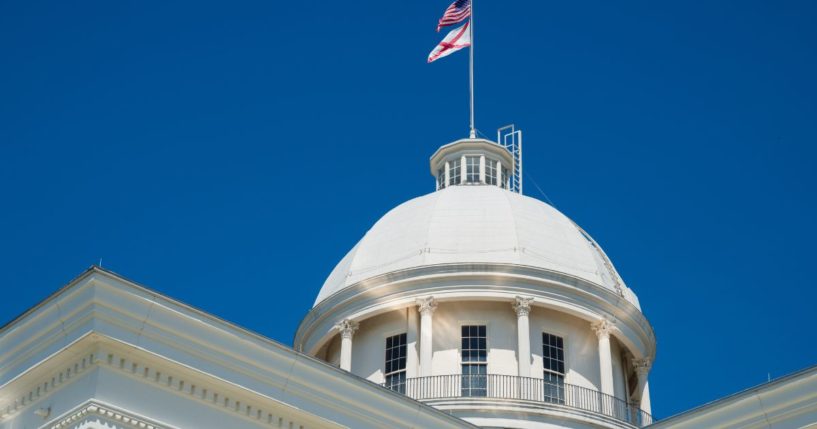
Op-Ed: State Lawmakers Have a Chance to Strike Back Against Anti-Consumer ESG Regime - They Must Take It
Without question, the single most important issue facing state lawmakers across the country this year is environmental activism masquerading as free market capitalism.
ESG (environmental, social and governance) schemes that weaponize such activism by some of the most powerful economic interests in the history of mankind have crept into everyday financial instruments and will most certainly destabilize, and ultimately transform, state industries and the very structures and institutions of America’s economy.
The ESG blueprint provides scores for people and businesses based on their carbon dioxide emissions, their climate change activism, whether they coordinate with and give money to leftist organizations, and the racial and gender identities of their workforce.
The nation’s largest banks, insurers and financial institutions have formed a cartel to jointly punish or outright refuse to provide necessary services to people and businesses that don’t demonstrate a commitment to advancing each of the above leftist policy goals.
Yet, despite the threat these global interests pose to traditional modes of economics and public policy (and that isn’t hyperbole), state lawmakers in Alabama have inexplicably canceled a hearing on legislation that would push back on these global financial players — players like BlackRock, an asset management firm that controls resources and capital worth more than the entire gross domestic product of every country not named the United States or China.
And while instinct may cause us to point fingers at weak-kneed Republicans who have overwhelming majorities in both the Alabama House of Representatives and Senate, the reason for the canceled hearing is likely more insidious and maddening, because the call is coming from the GOP itself.
For more than 100 years, the Republican Party enjoyed — albeit more tenuously than harmoniously at the best of times — a relationship with business interests whereby advocacy for the free market, liberty, the rule of law and economic prosperity was mutually beneficial. Yet the script has now flipped and the relationship has frayed, not just in the Heart of Dixie but all over the country.
A once-reliable symbiosis has now become open antagonism as corporate interests cajole, blackmail and intimidate Republican lawmakers and global financial interests bully policymakers into acquiescence in service of interests hundreds and thousands of miles away.
In states like Wyoming, North Dakota, Indiana and Missouri, large and powerful banking and industry interests defeated even the most modest of proposals to curtail ESG environmental activism at the expense of those states’ consumers and economic prosperity. It appears that is happening in Alabama, and it needn’t.
Surely, reasonable and thoughtful lawmakers wouldn’t kowtow to big banking and financial interests on Wall Street or in Birmingham, right? But that is exactly what seems to be happening. Indeed, some very prominent Alabama banks have gone all-in on ESG and made it a centerpiece of their business model.
As for the legislation that these interests seem intent on torpedoing, what does it do? It simply says that the state will no longer do business (enter into contracts) with any firm that utilizes ESG schemes contrary to Alabama’s economic interests. That’s it. That’s what it does. It is brilliant in concept and efficient in execution.
Admittedly, it’s hard to understand why certain business interests would oppose such legislation — until you peek behind the curtain and see that certain of those interests are already flexing their economic muscle, driven by ESG considerations.
In 2021, Regions Bank announced that it would not provide a line of credit for the construction of three new prisons in Alabama in response to racial activism and in accordance with its stated commitment to “diversity, equity and inclusion.” It is a very short step to predict such a powerful banking interest would boycott Alabama’s auto or energy sectors.
As Heritage Action for America points out, Senate Bill 261 would protect Alabama’s economic interests and the jobs of everyday Alabamians from the ESG threat by “protecting Alabama’s steel and auto manufacturing industries … [and ensuring] Alabama tax dollars are not supporting Left-wing climate agendas that threaten to upend pivotal industries for Alabama.”
It would also protect Alabama’s energy supply by “[ensuring] that Alabama tax dollars are not supporting companies that are pressuring electric utilities to phase-out gas and coal power by 2040, which provide over 63% of Alabama’s electricity.”
So, it regrettably seems that the once-reliable free market advocacy of Alabama’s business community has given way to an insidious form of anti-consumer, anti-Alabama activism and cronyism.
The Republican-dominated state legislature has an opportunity to join nearly a dozen other states that have drawn a line in the sand and refuse to hop on the ESG bandwagon. Alabama lawmakers should run with it.
The views expressed in this opinion article are those of their author and are not necessarily either shared or endorsed by the owners of this website. If you are interested in contributing an Op-Ed to The Western Journal, you can learn about our submission guidelines and process here.
Truth and Accuracy
We are committed to truth and accuracy in all of our journalism. Read our editorial standards.
Advertise with The Western Journal and reach millions of highly engaged readers, while supporting our work. Advertise Today.












